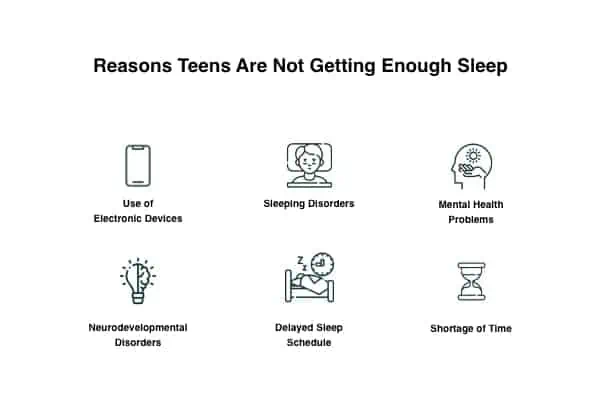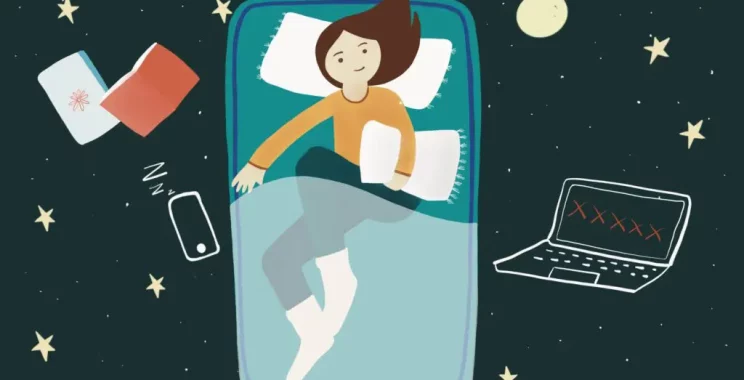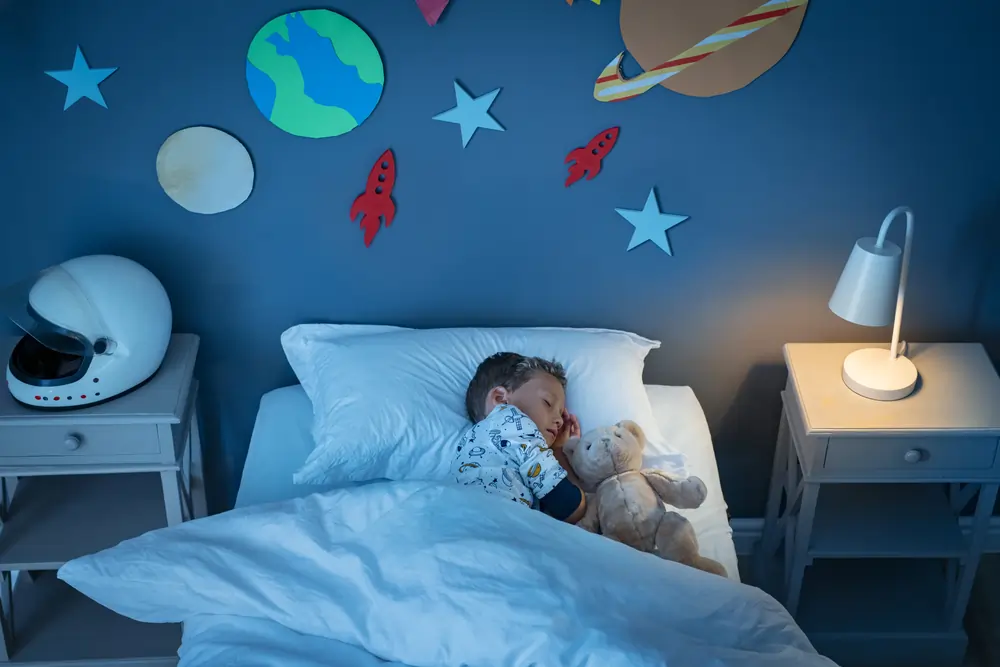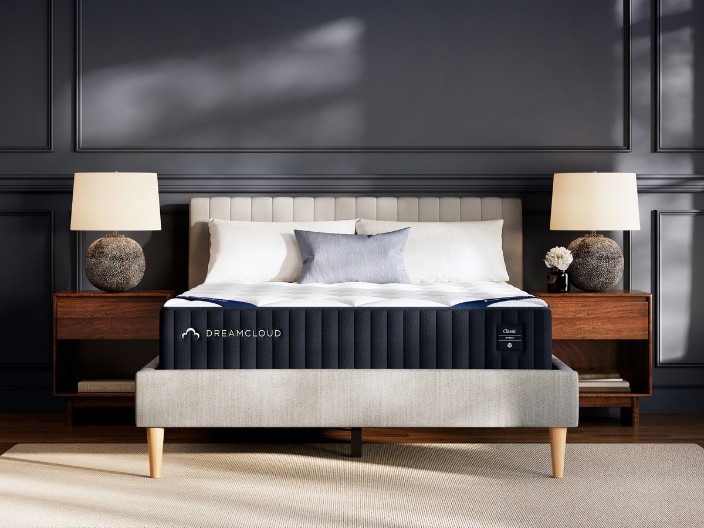How Many Hours of Sleep Do Teens Need?
Share
Fact checked
Reviewed by experts
Updated
December 23, 2022
Quick read
4 mins to read
List of Content
Teen and sleep don’t go well together. Late night parties, binge-worthy series, and work-study pressure have made it challenging for teens to have a good sleep schedule.
Teenagers’ sleeping patterns are a mess. On weekdays, they go to school sleep-deprived. On weekends, they sleep too much. Both cases create an unhealthy lifestyle for your teen.
According to the American Academy of Sleep Medicine, 13-18-year-old teens should sleep for 8 to 10 hours in 24 hours.
Why Is Sleep Important For Teens?
Sleeping enough is crucial in all stages of your life, especially for teenage mental, physical, and social development.
1. It helps with Academic Achievements
Teenagers need excellent retention and memory power. Sleeping enables them to memorize, learn, and consolidate information. It also facilitates creativity, quick learning, and expansive thinking. For acing the academics, learning a new skill, or working part-time, it is crucial to have a well-rested body.
2. Emotional Health
Sleep deprivation can make them feel irritated. Sleep deprivation can negatively affect emotional development and can also lead to severe mental illnesses. Experts link problems like anxiety, insomnia, stress, bipolar disorder, and the risk of suicide to poor sleep.
3. Growth and Development
Sleep facilitates the proper functioning of the body. It regulates hormones, boosts our immune system, and helps in recovery. The body goes through significant development in teenagers, and a lack of proper sleep can negatively affect growth.
As per a report, sleep-deprived teens are more prone to illnesses like diabetes and more.
4. Decision Making
Sleep deprivation can be risky. The frontal lobe, a part of0 the brain, plays a vital role in controlling our impulsive behavior. Studies have shown that sleep-deprived teens are more prone to drunk driving, texting, driving, and other road-related accidents.
Behavioral problems in teenagers can affect their health, academics, and relationships.
Are Teens Getting Enough Sleep?
How much sleep does a teenager need? The Centers of Disease Control (CDC) claims that teenagers need to sleep for 8 to 10 hours daily. A poll has been conducted to learn about the sleep habits of teens in the US. According to the poll results, 71% of the teens are sleep deprived.
According to the data, women, older teens get less sleep than men in their early teenage years. Here, we can conclude that teens are not getting enough sleep. Before we look into the solution, let’s learn about the causes in depth.
Reasons Teens Are Not Getting Enough Sleep

Use of Electronic Devices
We all know how fond adolescents are of their digital devices. But do you know these devices can stop your teenager from sleeping on time? These devices suppress melatonin production in their body, which aids in sleeping well. These electronic devices also keep their minds wired, making it difficult to sleep.
According to a poll, more than 89% of adolescents keep at least one device in their bedroom.
Sleeping Disorders
Just like adults, sleep disorders in teens can make it difficult for them to sleep. Adolescents can suffer from Obstructive Sleep Apnea (OSA), Restless Leg Syndrome (RLS), and narcolepsy.
Mental Health Problems
Mental health problems like anxiety, depression, and others can make sleeping difficult. Lack of sleep can cause these problems or make them worse.
Neurodevelopmental Disorders
Neurodevelopmental disorders are both a cause as well as a result of sleep deficiency. These disorders include attention-deficit/hyperactivity disorder (ADHD) and a spectrum disorder (ASD).
Delayed Sleep Schedule
Teenage sleep problems can affect the sleep-wake cycle. During adolescence, there is a high probability of becoming a night owl. Due to many factors, teenagers tend to sleep late, and they have to wake up early to go to school. It does not allow them to rest for recommended hours (8 to 11 hours). Teens may oversleep on weekends and worsen their sleeping schedule.
Shortage of Time
Teens have no time to spare. They are engaged in school assignments, work responsibilities, social activities, and more. This hectic schedule does not leave enough time for them to sleep. There is pressure and stress to take care of these commitments, which can cause problems like insomnia.
How to Help Teens Get Better Sleep?
Sleeping is no longer an easy task. We know how important it is for adolescents.
Below are some tips that can help teens get better sleep:
- Avoid caffeine, especially after 4 PM. Caffeine may disrupt the natural sleep wave and keep them awake at night.
- Don’t let them use electronic devices 30 minutes before bedtime.
- Invest in comfortable mattresses and pillows.
- Make sure the bedroom is quiet and dark.
- Make a daily 8-hour sleep schedule. Encourage them to be consistent.
- Sit with them and tell them the importance of sleep and the harmful effects of irregular sleep patterns.
- Expose them to sunlight as soon as they wake up.
- Develop a pre-bedtime routine to calm their minds. Try a hot bath, meditation, and journaling.
- Keep the alarm clock at a distance from the bed, so they have to get up to turn it off.
- Don’t let them nap for long periods.
- Motivate them to exercise regularly. Make sure they don’t exercise 1-2 hours before bedtime.
- If nothing helps, consult a doctor.
FAQs
Teenagers should sleep for a minimum of 9 hours daily. School timings don’t allow teens to sleep all day. So, it is not advised to stay up all night. Sleep deprivation can affect their physical and mental health.
To get 8 hours of sleep, teens should sleep between 10 PM to 11 PM. Try to sleep and wake up at the same time on the weekends too. This will help you create a consistent sleep schedule.
Try the following tips to help teens fall asleep fast:
- Avoid electronic devices before bedtime.
- Avoid taking caffeine.
- Develop a night routine that helps to relax the mind.
Supplements should be the last option. Instead, try natural methods. Best sleep aids for teens are listed below.
- Melatonin
- Magnesium
- Lavender
- Passionflower
Recommended sleep by age:
Age Range Recommended Hours of Sleep
- 0-3 months old 14-17 hours
- 4-11 months old 12-15 hours
- 1-2 years old 11-14 hours
- 3-5 years old 10-13 hours
- 6-13 years old 9-11 hours
The recommended amount of sleep is 8 to 10 hours. For optimal growth and development, teenagers should rest well. However, many factors contribute to their sleep deprivation.
This website does not offer medical advice nor professional medical services; rather, it is provided solely for educational, informational, and/or entertainment purposes. Individuals seeking medical advice should consult a licensed physician. The information provided should not be used for diagnosis or treatment of any condition, disease, or injury. When you have a medical condition, you should always talk to licensed doctor or other certified medical professional. You should never delay seeking professional medical advice or treatment based on the contents of this website. Call 911 or immediately go to the nearest emergency room if you think you may have a medical emergency. The contents of this website are provided “as-is”, Sleep Authority and its parent, subsidiaries, affiliates, employees, contributors disclaim any warranty of the information contained herein. Please contact using contact form to report any errors, omissions, misinformation, or abuse.
Sleep Authority is brought to you by Resident, the company that brings you Nectar, DreamCloud, Awara, Wovenly, Bundle, Home Well Designed and Level Sleep.






